Tianheng Zheng
NTIRE 2025 Challenge on Day and Night Raindrop Removal for Dual-Focused Images: Methods and Results
Apr 19, 2025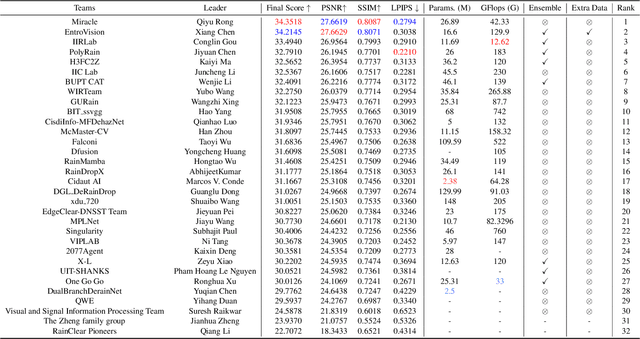
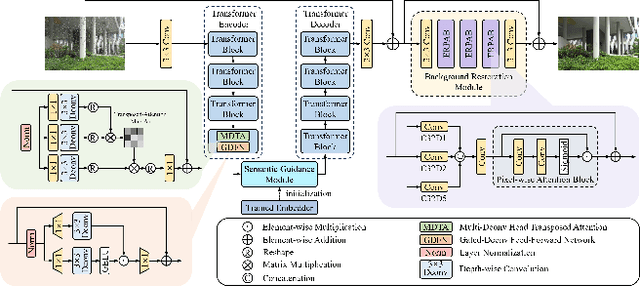
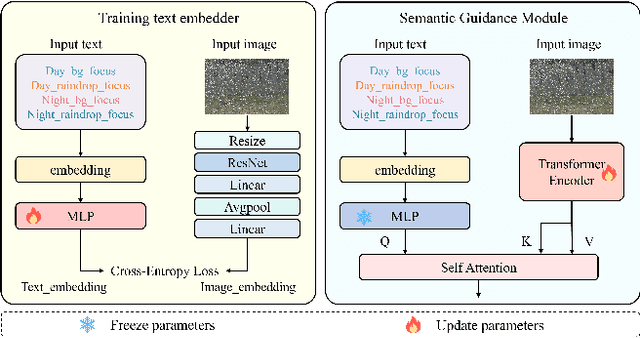
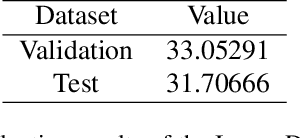
Abstract:This paper reviews the NTIRE 2025 Challenge on Day and Night Raindrop Removal for Dual-Focused Images. This challenge received a wide range of impressive solutions, which are developed and evaluated using our collected real-world Raindrop Clarity dataset. Unlike existing deraining datasets, our Raindrop Clarity dataset is more diverse and challenging in degradation types and contents, which includes day raindrop-focused, day background-focused, night raindrop-focused, and night background-focused degradations. This dataset is divided into three subsets for competition: 14,139 images for training, 240 images for validation, and 731 images for testing. The primary objective of this challenge is to establish a new and powerful benchmark for the task of removing raindrops under varying lighting and focus conditions. There are a total of 361 participants in the competition, and 32 teams submitting valid solutions and fact sheets for the final testing phase. These submissions achieved state-of-the-art (SOTA) performance on the Raindrop Clarity dataset. The project can be found at https://lixinustc.github.io/CVPR-NTIRE2025-RainDrop-Competition.github.io/.
Channel Consistency Prior and Self-Reconstruction Strategy Based Unsupervised Image Deraining
Mar 24, 2025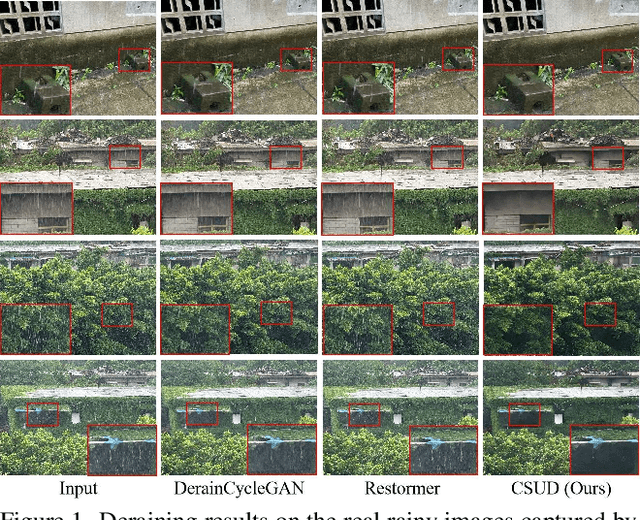
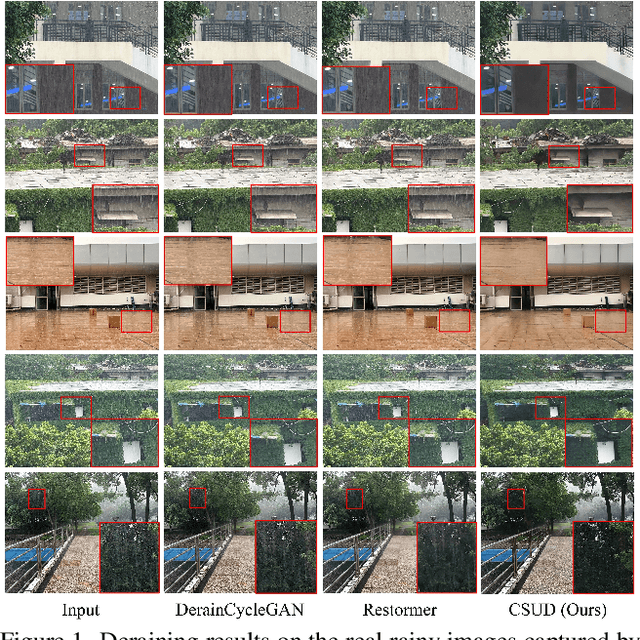

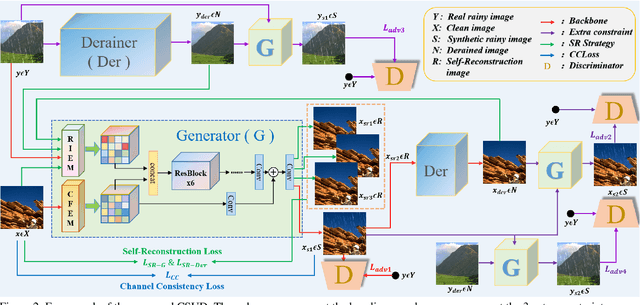
Abstract:Recently, deep image deraining models based on paired datasets have made a series of remarkable progress. However, they cannot be well applied in real-world applications due to the difficulty of obtaining real paired datasets and the poor generalization performance. In this paper, we propose a novel Channel Consistency Prior and Self-Reconstruction Strategy Based Unsupervised Image Deraining framework, CSUD, to tackle the aforementioned challenges. During training with unpaired data, CSUD is capable of generating high-quality pseudo clean and rainy image pairs which are used to enhance the performance of deraining network. Specifically, to preserve more image background details while transferring rain streaks from rainy images to the unpaired clean images, we propose a novel Channel Consistency Loss (CCLoss) by introducing the Channel Consistency Prior (CCP) of rain streaks into training process, thereby ensuring that the generated pseudo rainy images closely resemble the real ones. Furthermore, we propose a novel Self-Reconstruction (SR) strategy to alleviate the redundant information transfer problem of the generator, further improving the deraining performance and the generalization capability of our method. Extensive experiments on multiple synthetic and real-world datasets demonstrate that the deraining performance of CSUD surpasses other state-of-the-art unsupervised methods and CSUD exhibits superior generalization capability.
Asymmetric Mask Scheme for Self-Supervised Real Image Denoising
Jul 10, 2024



Abstract:In recent years, self-supervised denoising methods have gained significant success and become critically important in the field of image restoration. Among them, the blind spot network based methods are the most typical type and have attracted the attentions of a large number of researchers. Although the introduction of blind spot operations can prevent identity mapping from noise to noise, it imposes stringent requirements on the receptive fields in the network design, thereby limiting overall performance. To address this challenge, we propose a single mask scheme for self-supervised denoising training, which eliminates the need for blind spot operation and thereby removes constraints on the network structure design. Furthermore, to achieve denoising across entire image during inference, we propose a multi-mask scheme. Our method, featuring the asymmetric mask scheme in training and inference, achieves state-of-the-art performance on existing real noisy image datasets. All the source code will be made available to the public.
 Add to Chrome
Add to Chrome Add to Firefox
Add to Firefox Add to Edge
Add to Edge